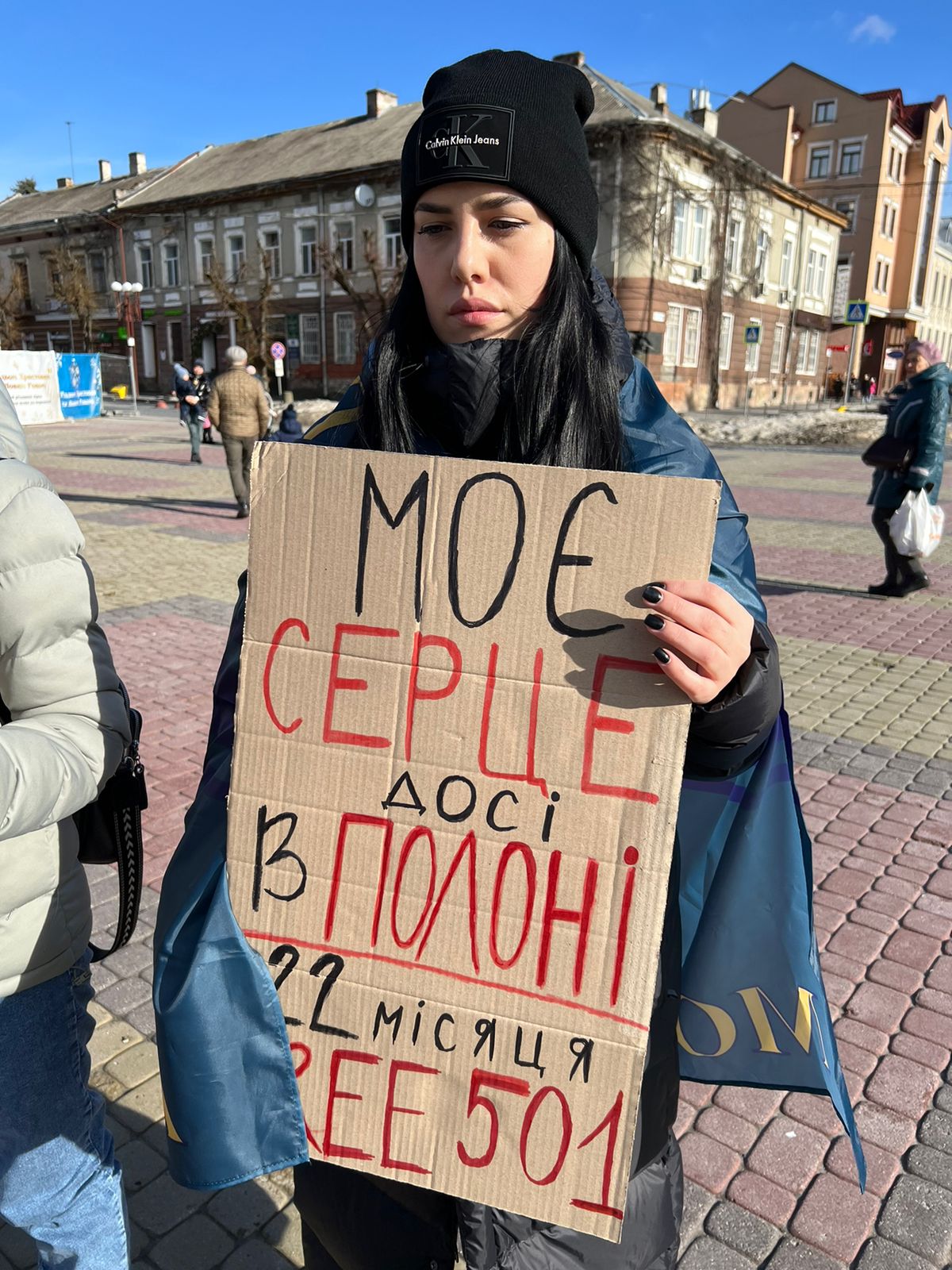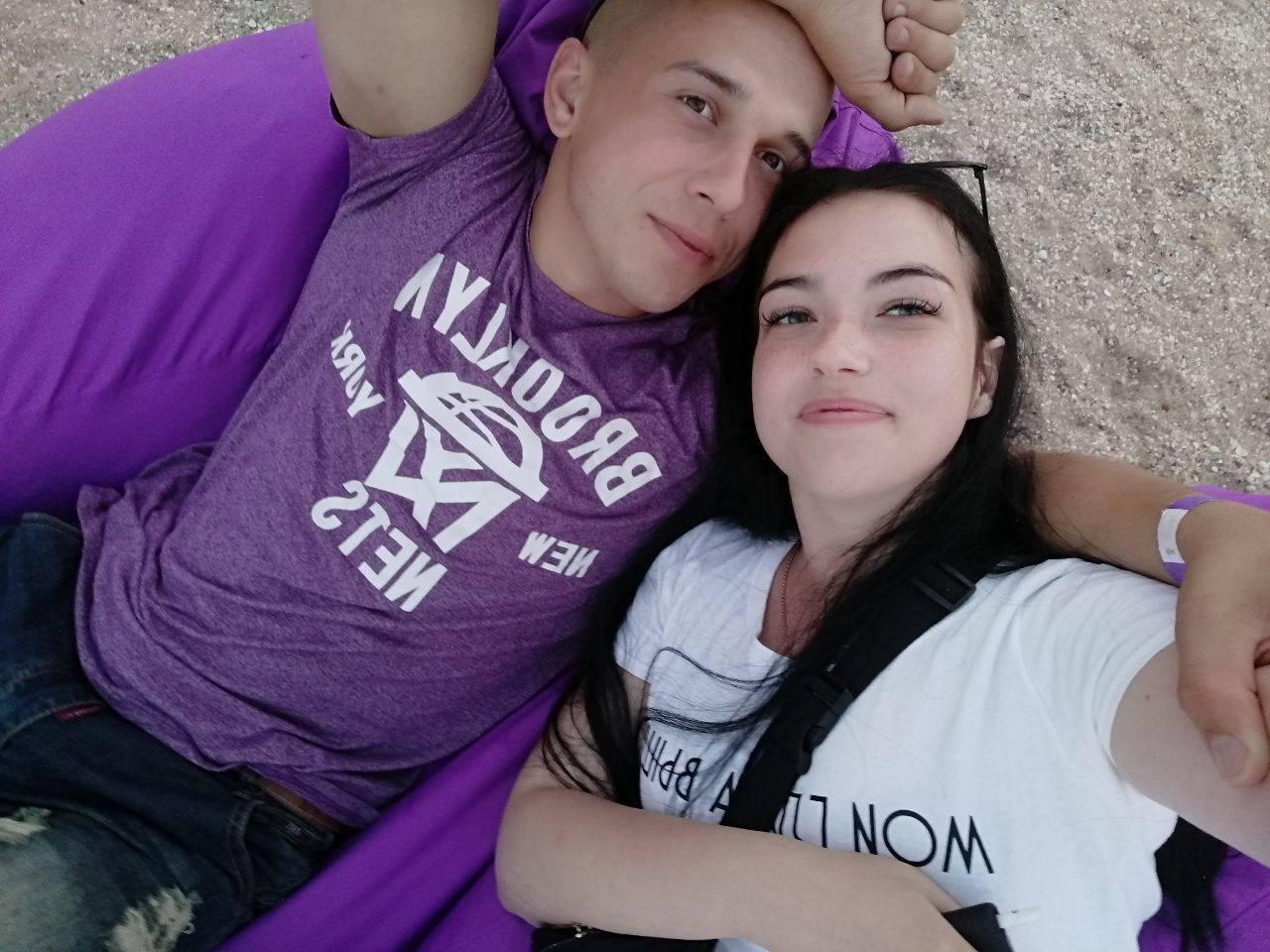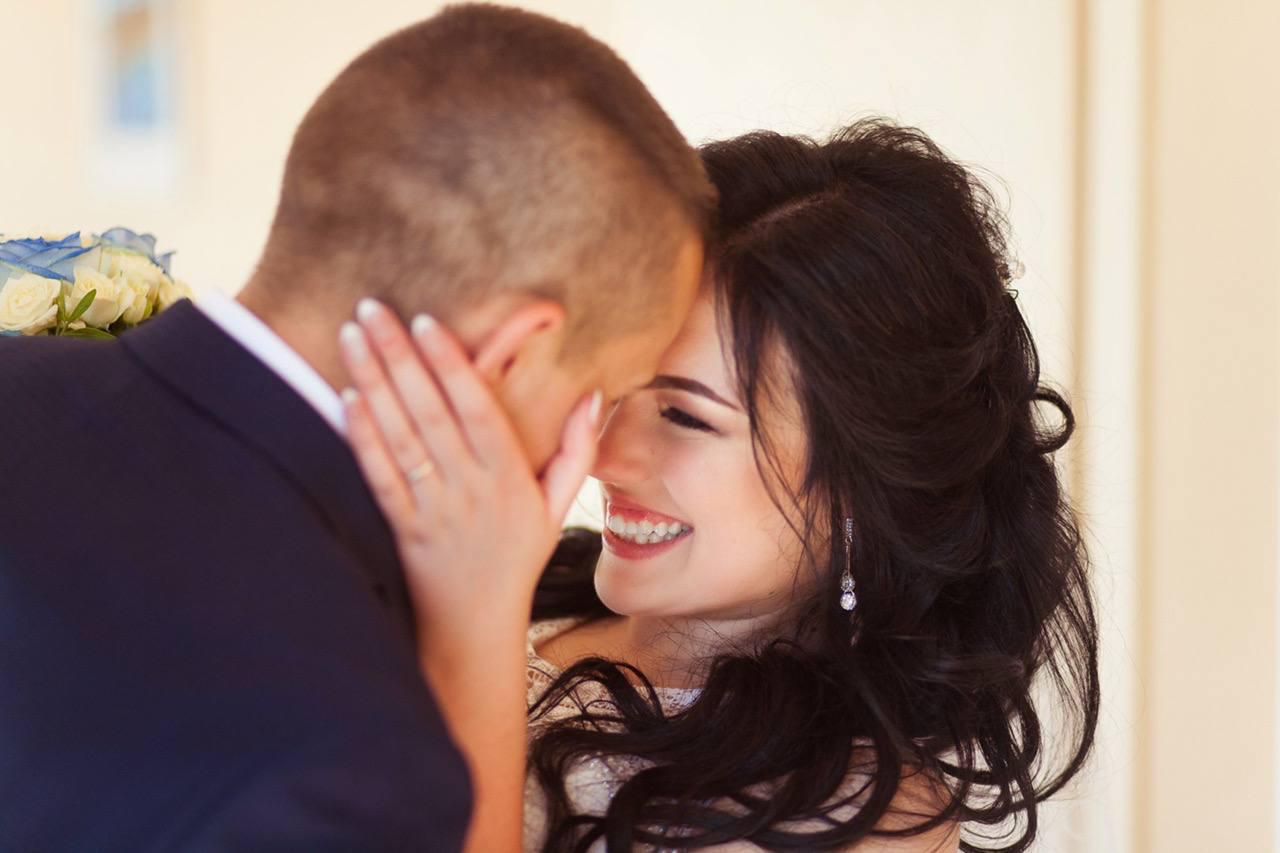Vladimir Putin ruined my wedding day: The Ukrainian couple who were due to marry the day Russia invaded
Svitlana Chepalova was supposed to marry her Marine Corps fiance on 24 February 2022. Instead, he joined the battle to save Mariupol and was captured. Like thousands more wives and partners of Ukrainian prisoners of war, she is increasingly alarmed by reports of the harsh conditions and daily beatings in Russian prison colonies. Arpan Rai reports


Svitlana and Leonid had chosen a beautiful venue for their big day; her wedding dress was picked out, and the most pressing concern on the horizon was where to spend their honeymoon – Turkey had been earmarked as top choice.
“It was a wonderful time, as if we knew each other our whole lives,” says Svitlana Chepalova in an interview with The Independent, speaking of her fairytale romance with her Ukrainian Marine Corps fiance.
There was one problem, the day they had picked. Initially scheduled for 22 February 2022, it had to be pushed back two days to Thursday 24 February. That date is now branded in the memories of all Ukrainians as the day Vladimir Putin declared his “special military operation” and sent thousands of troops across the border to attack Russia’s neighbour to the west.
Serving with Ukraine’s 501 Marine Battalion in Mariupol was never supposed to be easy, particularly with the mounting warnings at the time that Russia was preparing the ground for an invasion. But the speed with which Putin decided to order the attack still took many by surprise, and the siege of Mariupol effectively crashed Chepalova’s wedding. Within just a few weeks of the conflict, on 4 April, Leonid was taken prisoner by Russian soldiers.

In her last exchange with him on 26 March, just 10 days before his capture by Russian forces in Mariupol, he switched to a heavily coded military language in his responses to her. It was her birthday but he shared very little about himself. “He used ‘+’ in his responses (meaning everything is OK), and said he is alive,” Chepalova tells The Independent.
With missiles raining down on Mariupol, their conversations were cut short and her messages to him went unanswered. Then she saw videos appearing on Russian mil blogger Telegram and YouTube channels showing more than 260 Ukrainian servicemen surrendering with both hands raised. “I saw him in the footage, and knew Russia had captured him,” she recalls.
Though Putin’s intervention meant they never actually walked down the aisle, Chepalova still refers to Leonid in the interview as her “husband”. Russia’s war on Ukraine entered its third year last month, and there appears little prospect of a halt to hostilities any time soon, with Putin’s forces probing Ukrainian defences at several points along the war’s 1,500km frontline and bombarding towns and villages with missiles and artillery bought from Iran and North Korea.

“A Ukrainian prisoner of war (PoW) who was my husband’s cellmate told me of the horrible conditions in which they were kept,” Chepalova says. “His health is barely three out of 10, and a photo from last January showed his face hollowed out from hunger and poor health.
“They melt ice to drink water, as the only way to quench their thirst. They are left without food for weeks,” she says, adding that the former cellmate told her his tuberculosis has worsened in the damp and cold conditions inside the prison colony.
Leonid has already spent two birthdays in Russian captivity – Chepalova does not know exactly where he is being held, nor does she have any recent updates on his condition – but she still holds out hope that his third, this May, will be celebrated in Ukraine. She now divides her time between helping stage peaceful demonstrations across Ukraine and seeking his release from the Russian authorities, searching for his face in each batch of PoWs released in exchanges between the two countries.
She is joined in these efforts by other wives and partners of Ukrainian PoWs, facing the same uncertain wait for news while campaigning for Volodymyr Zelensky’s government to secure more prisoner exchanges.
Olha Kurtmallaeva last spoke to her husband Ruslan on 26 March 2022, before he was captured like Leonid in Mariupol. Alongside the strain of worrying about his fate, she is also attending chemotherapy sessions to treat her uncommon form of cancer, Hodgkin’s lymphoma. She suffers from a late-stage lymphatic tumour and has had her hospital treatment significantly disrupted by Putin’s invasion.

“After my chemotherapy, I feel feeble and weak. I fainted once after returning home from the hospital,” she says.
What energy she has left is dedicated to advocating for her husband’s return: she keeps a go-bag ready to bring to Ruslan the moment she receives word that he has been released, and has now done so for almost two years. As the seasons come and go she rearranges its contents with fresh sets of clothes – woollens for winters, T-shirts for summer, each time hoping it will be the last swap required.
Like Chepalova, Kurtmallaeva has only received word about Ruslan’s condition second-hand, from meeting other PoWs who spent time in captivity with her husband. “Some of them, weighing a strong 90kg before the invasion, have lost weight and are now barely 40-50kg. They have no proper food there, or medicines,” she says.
Ukrainian officials responding to her pleas for help say Russia is particularly reluctant to release any of the captured defenders of Mariupol, given the heightened attention the city’s siege received around the world.
Alongside advocating for her husband’s release, Kurtmallaeva is calling for the UN and the Red Cross to facilitate visitations for family members on either side of the conflict to meet with their captive loved ones.
“We know they are barely surviving in Russian hands, let us at least meet them,” she says. “The conditions are bad, we know. They are beaten up and are losing half of their weight without anything half-decent to eat. There’s no basin to even let them wash their faces.”
Ukraine says it permits Russian soldiers in its captivity to send messages and talk to their families back home.

Nearly 6,000 Ukrainian servicemen and civilians are in Russia’s custody as PoWs and Moscow appears to be actively postponing talks to arrange exchanges, officials handling the swaps tell The Independent.
“The exchanges aren’t happening as frequently as Ukraine wants. Russia makes these exchanges of POWs extremely difficult. They do not want their men back,” says Petro Yatsenko, head of the press service of the Coordination Headquarters for the Treatment of Prisoners of War.
Last year there was not a single prisoner exchange between the months of August and December, he says, due to the lack of Russian cooperation.
“It is difficult to negotiate with such a counterpart. It is not your regular roundtable negotiation with gentlemen, these talks resemble a slavery market of the Middle Ages. [It is] like trading cattle,” he says.
He adds: “Russia negotiates with us on the basis of [swapping] one Ukrainian soldier for two Russians. The Russians also don’t share information on which PoW they are sending. Our only way, what we were left with as an option on the table to get our men back, was to capture more Russians.”
Yatsenko’s agency was formed in the wake of Russia’s full-scale invasion, because prior to February 2022 there were only around 300 Ukrainian civilians in Russian captivity, the result of a much more localised and long-running conflict of attrition over control of the Donbas region.
Russia and Ukraine now have thousands of each other’s soldiers in captivity.
Yatsenko says Ukraine has proposed a prisoner exchange every month and Russia has rejected it almost every time. “We have to keep pushing to get Ukrainian soldiers back because we have learnt that the conditions in Russian captivity are worse.”
While Ukraine has allowed the International Committee of the Red Cross to visit their two prisoner camps and assess the conditions, Russian camps remain out of reach for the UN and the Red Cross.
“Around 90 per cent of Ukrainian soldiers who returned from Russian camps confirmed they were beaten every day, tortured mentally and were not given sufficient food,” he tells The Independent.
Russia has previously denied torture or other forms of maltreatment of PoWs.
Yatsenko says the agonising wait for families of Ukrainian servicemen will continue as long as Putin is happy to draw out the suffering of those like Chepalova and Kurtmallaeva.
“We’re ready for an all-out exchange of all servicemen captured on both sides but Russia is not,” he says. “It wants to use this as propaganda to demotivate Ukrainian PoW families.”
Join our commenting forum
Join thought-provoking conversations, follow other Independent readers and see their replies
Comments
Bookmark popover
Removed from bookmarks